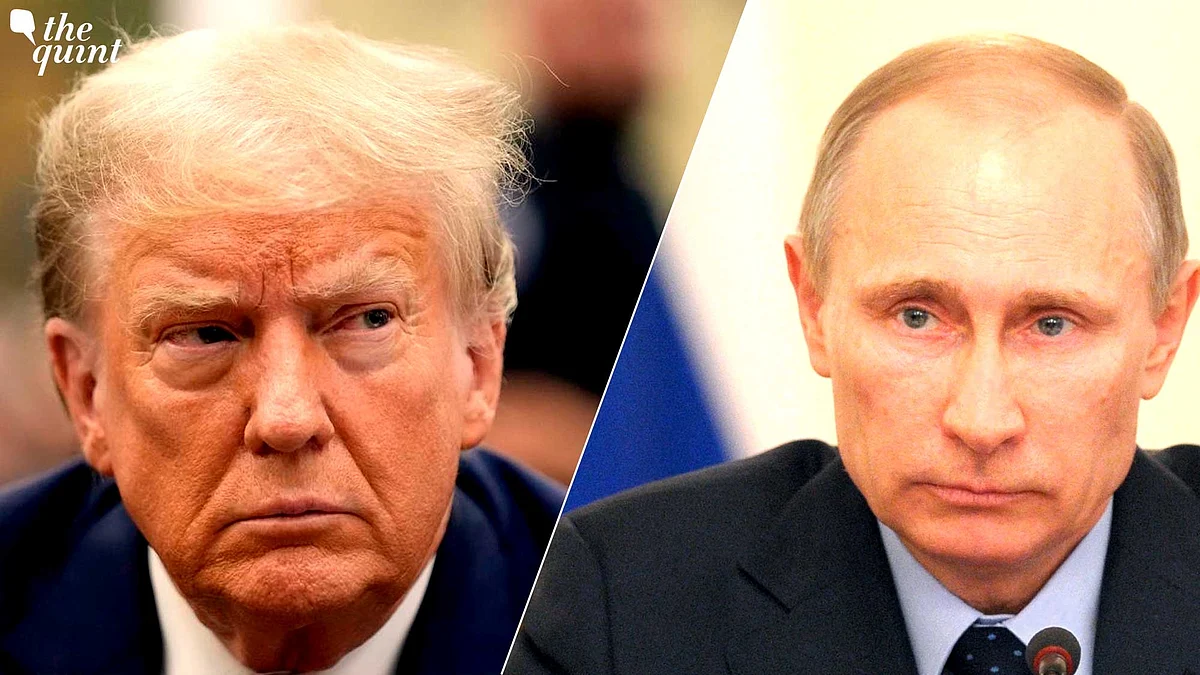
Trump-Putin Phone Call: US' 30-Day Ceasefire Proposal Falls Apart Within Hours
Trump’s latest phone call with Putin seemingly didn’t amount to any substantive changes.

advertisement
Russian President Vladimir Putin agreed to a proposal by US President Donald Trump for Russia and Ukraine to stop attacking each other’s energy infrastructure for 30 days, according to statements by both the White House and the Kremlin.
Yet, within hours of a Trump-Putin phone call about a US ceasefire proposal, Russia was reportedly attacking Ukrainian energy facilities again, leading Ukraine’s Volodymyr Zelenskyy to accuse Putin of effectively rejecting the terms.
The deal falls short of an unconditional 30-day ceasefire proposed by US and Ukrainian officials earlier this month.
The winter, when Ukraine is most vulnerable to Russian attacks on its energy infrastructure, is almost done. Russia’s dependence on energy exports to support its war effort, however, remains constant, and any Ukrainian attacks on Russian energy facilities will be framed as a breach by Russian authorities.
Russia exploiting Trump’s desire for peace at any cost will probably be an ongoing trend. Given the earlier proposal was highly vague, this leads to one conclusion. Russia is playing for time to maximise its negotiating position.
Trump’s Pursuit of Peace at Any Cost
The US is playing an important role in peace negotiations. Under former president Joe Biden, this was due to the fact that the US provided Ukraine with arms and moral support.
This development places Zelenskyy in a political bind. The US in the past provided most of the military aid to Ukraine and the relationship between the Ukrainian leader and Trump is acrimonious.
As such, even if Zelenskyy doesn’t agree with American ceasefire proposals, he must give the appearance of agreement or risk permanently alienating the mercurial Trump. Putin, in the meantime, will exploit Ukrainian-American tensions.
The War of Attrition
The first year of the current phase of the Ukraine-Russia war was marked by mobility as both Russia and Ukraine made considerable advances and counteroffensives.
Since the start of 2023, however, the conflict is increasingly defined as a war of attrition and a stalemate.
For the past several months, Russian forces have been making slow, steady advances against Ukrainian positions. Russia has suffered significant casualties in these advances, and they may not be sustainable over the long term.
Putin is gambling that Ukraine’s and the international community’s will to fight will be broken by the time this is an issue. Trump’s push for a ceasefire at any cost suggests Putin may have a point.
Any immediate ceasefire agreement between Russia and Ukraine would leave Ukraine occupying Russian soil in the Kursk region, which Russia cannot accept.
Putin's Strategy: Playing for Time
Ukraine’s 2024 incursion into the Kursk region provided the country and its people with a necessary respite from the war of attrition. Ukrainian forces, attacking an under-defended and unprepared part of the Russian front line, made significant advances into Russia.
Putin recently said Russian forces encircled Ukrainian forces in the salient, although Ukraine denies it. Regardless of the statement’s validity, it speaks to the importance both parties attach to the battle.
This issue highlights a particular problem for the Russian leadership. Russia has done its utmost to frame its so-called “special military operation” in Ukraine as a success. An example is Russia’s formal annexation of four Ukrainian areas in 2022, despite not actually possessing the territory at the time.
Any perception of the invasion of Ukraine as a failure is a non-starter for a Russian government concerned about its domestic standing.
Ukraine possessing Russian territory, however, leads to questions in Russia about the war’s success. Ukraine, in exchange for relinquishing any Russian territory it seized during the war, would undoubtedly seek the return of Ukrainian territory.
Putin is following the Russian playbook of negotiating from strength. So long as Ukraine maintains Kursk, Russia will not negotiate in good faith.
While Kursk is the most prominent area of Russia concern, there are other conditions that will become important in the future as Putin seeks to improve Russia’s negotiating position.
It’s a lesson that Trump will soon learn, despite any and all efforts he or his administration make to frame things positively.
(James Horncastle is an Assistant Professor and Edward and Emily McWhinney Professor in International Relations, Simon Fraser University. This article was originally published on The Conversation under a Creative Commons License. Read the original article here.)
- Access to all paywalled content on site
- Ad-free experience across The Quint
- Early previews of our Special Projects
Published: undefined